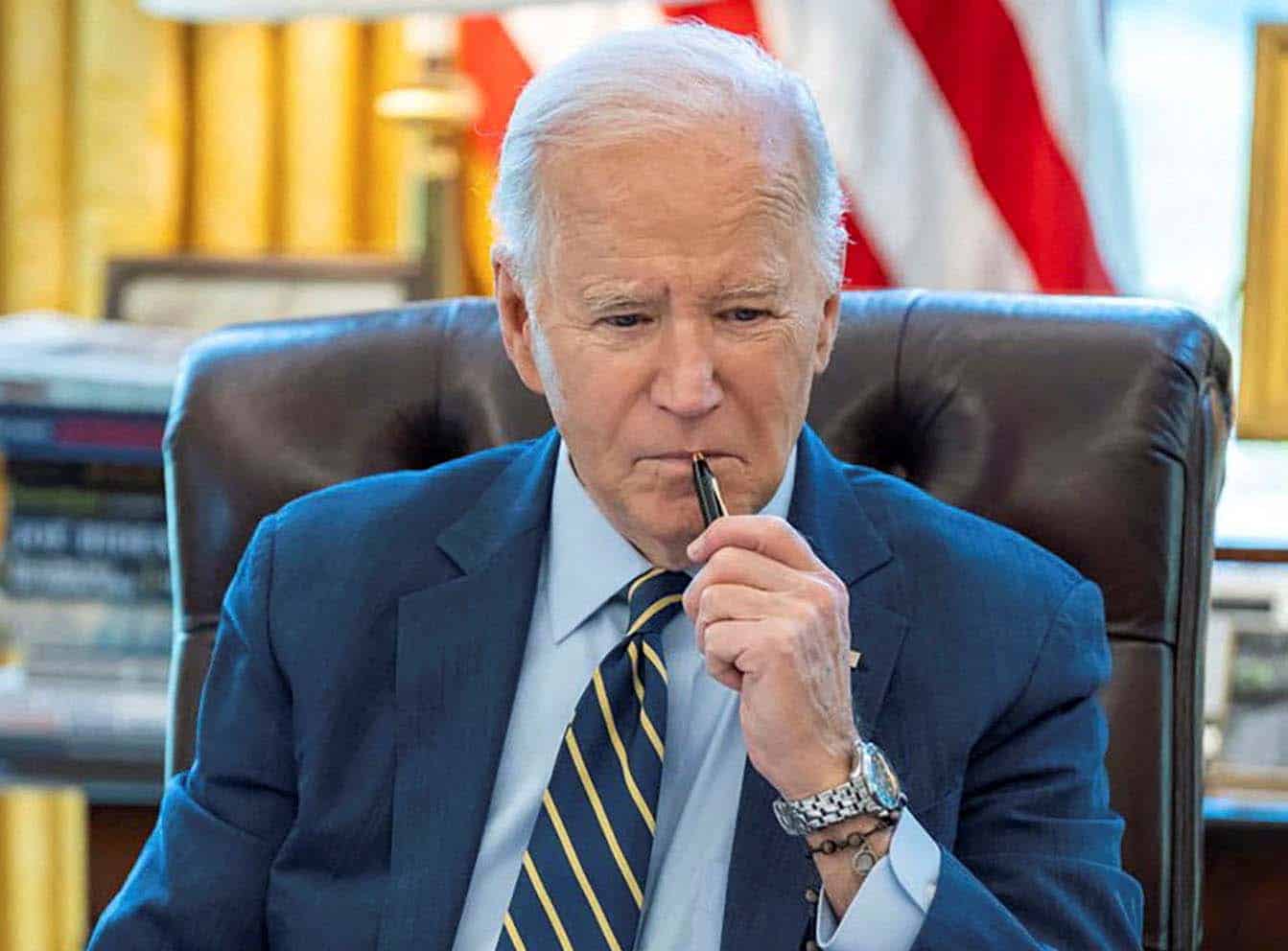US frustration has reached an apex
By Arshad Mohammed, Matt Spetalnick and Steve Holland
US President Joe Biden effectively gave Israeli Prime Minister Benjamin Netanyahu an ultimatum on Thursday: protect Palestinian civilians and foreign aid workers in Gaza or Washington could rein in support for Israel in its war against Hamas militants.
The message, after months of US calls for Israel to change its military tactics that have killed tens of thousands of Palestinians, followed an Israeli attack that killed seven World Central Kitchen (WCK) aid workers and triggered global outrage.
Israel admits the strike was a mistake.
Analysts said the implicit threat was to slow US arms transfers to Israel or to temper US support at the U.N.
“This is as close to a ‘come to Jesus’ moment as you can get,” said analyst Steven Cook of the Council on Foreign Relations think tank, referring to Biden’s comment last month that he and Netanyahu were heading for such a turning point.
Dennis Ross, a veteran US diplomat now at the Washington Institute for Near East Policy said: “The president, in effect, is saying meet these humanitarian needs or I will have no choice but to condition (military) assistance.”
Biden, up for re-election in November, has struggled to balance pressure to rein in Netanyahu from progressive Democrats dismayed at the Palestinian civilian death toll against the risk that may alienate mostly pro-Israel independent voters. He has so far resisted setting conditions on arms transfers.
The war began after Hamas’ October 7 attack on Israel killed 1,200 people, according to Israeli tallies, prompting an Israeli invasion that has laid waste to much of the densely populated territory and displaced most of its 2.3 million people.
More than 33,000 Palestinians have died, according to the health ministry in Hamas-ruled Gaza, of which most were women and children. Israel accuses Hamas of using civilians as human shields.
Describing their call, the White House said Biden called for Israel “to announce and implement a series of specific, concrete, and measurable steps to address civilian harm, humanitarian suffering, and the safety of aid workers.
“He made clear that US policy with respect to Gaza will be determined by our assessment of Israel’s immediate action on these steps,” the White House added in a statement.
US Secretary of State Antony Blinken was more blunt.
“Look, I’ll just say this: if we don’t see the changes that we need to see, there will be changes in our policy.”
On Thursday evening, just hours after the call, the Israeli government announced several steps to increase aid flows to Gaza, including opening the Ashdod port and the Erez crossing into northern Gaza and increasing aid deliveries from Jordan. It was not clear if the steps would be enough to satisfy US demands.
TURNING POINT
The turning point for Biden, an ardent supporter of Israel, was Monday’s deadly Israeli attack on the workers from celebrity chef Jose Andres’ WCK charity group.
It came as the Biden administration has been stepping up pressure on Israel to consider alternatives to a threatened ground offensive in the southern Gaza city of Rafah, the last relatively safe haven for civilians in the coastal enclave.
Speaking on condition of anonymity, a source familiar with the talks said the 30-minute call was at times tense, with Biden spelling out his concerns and Netanyahu defending his approach on Gaza.
A senior White House official described the conversation as “very direct, very straightforward”, saying it included Vice President Kamala Harris, National Security Adviser Jake Sullivan and Blinken.
As to what the United States expects, the official said: “We need a comprehensive plan on them doing a much better job here. They can’t be killing humanitarian aid workers and civilians.”
While Biden has long avoided curtailing US support for Israel, he may finally have reached his limit.
“There was always going to be a point at which the Biden administration felt that the domestic and international cost of supporting Israel’s campaign in Gaza outweighed the benefit of what Israel was able to achieve on the ground,” said Mike Singh, a former National Security Council official on the Middle East.
“What is remarkable is not that this is happening but that it took so long.”
Singh, now at the Washington Institute for Near East Policy, said if Israel did not meet Biden’s conditions, the likeliest step was the US negotiating a UN Security Council resolution like the one that ended the 2006 Israel-Hezbollah conflict.
“Placing conditions on arms transfers is more fraught politically, would likely face stiff opposition on (Capitol) Hill, and could leave Israel vulnerable to attack by Hezbollah or other Iranian proxies,” he added.
Still, Biden may have telegraphed his thinking last month when, after saying a Rafah invasion would be a “red line”, he said he would never cut off “all weapons so that they don’t have the Iron Dome (missile defence system) to protect them”.
He did not explicitly make such assurances about offensive weapons, fuelling speculation he could impose conditions on such arms transfers to Israel, which relies heavily on US arms.
Jonathan Panikoff, a former deputy national intelligence officer on the Middle East, said Biden was unlikely to take drastic action upending US-Israeli ties, such as withholding big-ticket weapons or completely abandoning Israel at the UN
But he could put conditions on smaller military items and take further measures against extremist Jewish settlers involved in attacks on Palestinians in the occupied West Bank.
“Biden’s frustration with how the war is being conducted, and with Prime Minister Netanyahu himself, has reached an apex,” Panikoff said.







Click here to change your cookie preferences